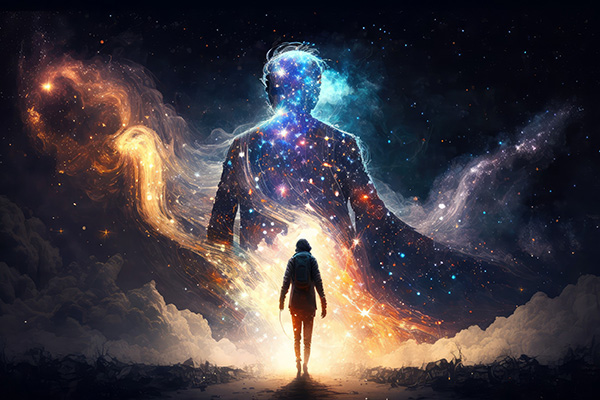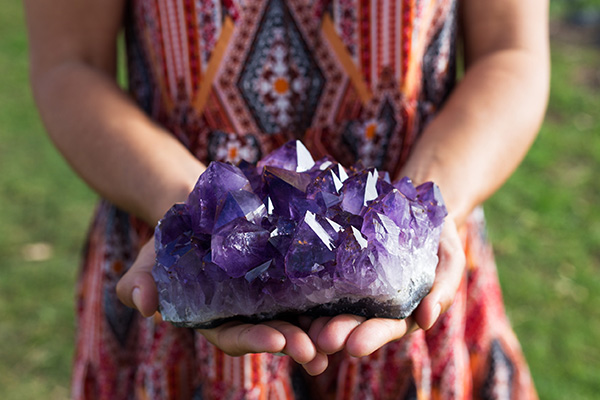Begin By Loving Yourself Unconditionally
 The first person each of us learns to love is ourselves. And that’s exactly how it should be, although many of us seem to forget this fundamental truth as we navigate the complexities of life.
The first person each of us learns to love is ourselves. And that’s exactly how it should be, although many of us seem to forget this fundamental truth as we navigate the complexities of life.
But if we don’t cultivate self-love, how can we expect to show genuine love and care for anyone else?
In our society, love is often misunderstood as an abstract “thing” that we either have or don’t have. This view is fundamentally flawed. Love is not just a passive state or a fleeting emotion; it’s an active, conscious choice. We must make self-love an integral part of our daily thoughts and actions.
Unfortunately, our culture is often harsh, judgmental, and narrow-minded. This societal backdrop can deeply affect our self-perception, making it easy to forget how to love ourselves. Many people experience moments of self-doubt or feel less than perfect.
This self-criticism can snowball and lead us to constantly put ourselves down. But this doesn’t have to be our reality. The foundation of all healthy relationships – romantic or otherwise – is unconditional self-love.
So how do we cultivate this essential self-love? It begins with simple affirmations. Remember that you are you – and that’s more than enough. Create a mantra that resonates with you and repeat it regularly. When you’re comfortable, try speaking directly to your reflection in the mirror. It may feel awkward at first, but it’s a powerful way to reinforce positive self-esteem.
Understanding The Higher Self
 In modern spirituality and metaphysics, the concept of the “higher self” is generally considered a cornerstone of spiritual awareness and conscious living.
In modern spirituality and metaphysics, the concept of the “higher self” is generally considered a cornerstone of spiritual awareness and conscious living.
The idea that we have a “higher self” is found in many spiritual and mystical traditions, although it may be called by different names and understood in different ways.
Despite these differences, the underlying idea is that there is a higher, more enlightened aspect of our being that we can connect with and embody.
Often mentioned in discussions of intuition, mindfulness, enlightenment, and the search for deeper meaning, the higher self is seen as a guiding force or eternal soure of wisdom that transcends our everyday consciousness.
Yet despite the common use of this term in modern spiritual communities and teachings, there remains a great deal of confusion and variation in how the higher self is understood and interpreted. There are many different opinions and beliefs. Some see it as our inner connection to the divine or universal consciousness. Others see it as the true spiritual essence, free from the limitations of the human ego. And some simply see it as an alternative term for our eternal spirit or soul identity.
In my experience, most of the confusion and misunderstanding arises because the higher self is mistakenly seen as a distinct and separate entity from the soul or spirit. From this perspective, the higher self is seen as entirely separate from our soul, representing our connection to something greater than ourselves, to the divine or universal consciousness.
Seeing The Future In Precognitive Dreams
 Many people will tell you that they’ve had a precognitive dream at some point in their lives. In short, this is a dream that somehow revealed or predicted a future event or circumstance. Literature, myth, and history are filled with stories of such dreams, from ancient times to the sinking of the Titanic.
Many people will tell you that they’ve had a precognitive dream at some point in their lives. In short, this is a dream that somehow revealed or predicted a future event or circumstance. Literature, myth, and history are filled with stories of such dreams, from ancient times to the sinking of the Titanic.
The concept of precognitive dreams has fascinated mankind for centuries. In ancient cultures, dreams were seen as messages from the gods or the universe, guiding individuals through their waking lives.
The Bible, for example, contains numerous accounts of prophetic dreams, such as Joseph’s dreams that foretold his rise to power in Egypt. These stories underscore the long-held belief that dreams can provide glimpses into the future.
But how much truth is there in the idea of dreaming the future? Is it really a thing?
Throughout history, people have reported dreams that seemed to predict future events. These precognitive dreams, as they’re called, have included personal tragedies, world-shaping conflicts, and even scientific breakthroughs.
Carl Jung, a prominent Swiss psychiatrist and psychoanalyst, was interested in the phenomenon of precognition in dreams. He believed that dreams could sometimes contain elements of future events or insights that were not consciously available to the dreamer. Jung coined the term “synchronicity” to describe meaningful coincidences that defy conventional explanations of cause and effect, suggesting a deeper connection between the psyche and external events.
My Spiritual Encounter With A Bear
 Imagine venturing deep into the forest, sunlight streaming through the ancient trees. The air is crisp, alive with the gentle whispers of nature. Suddenly, a colossal bear emerges from the underbrush, its presence a primal force in the serene scene.
Imagine venturing deep into the forest, sunlight streaming through the ancient trees. The air is crisp, alive with the gentle whispers of nature. Suddenly, a colossal bear emerges from the underbrush, its presence a primal force in the serene scene.
Well, chances are this isn’t just another wildlife encounter – it’s a potentially powerful spiritual experience, imbued with profound symbolism.
My psychic mentor and I once had such a remarkable encounter with a bear that brought me some deep spiritual insights.
The forest has always been a happy place for me, and for this particular long-term retreat, I rented a cabin in the Great Smoky Mountains National Park in Gatlinburg, Tennessee. One crisp fall evening, while my friend was visiting me and we were enjoying the tranquility of twilight on the back porch, a large black bear wandered into the back yard.
At first, we were both gripped with fear. Seeing such a powerful creature up close is both awe-inspiring and very intimidating! Fortunately, the bear paid us little attention as he calmly foraged for food, his movements deliberate and unhurried.
After the initial shock, we found ourselves mesmerized by his presence. I am always on the lookout for signs and synchronicities from the universe. Decades of spiritual work have taught me that nothing is accidental or random, especially when you are in the wilderness.
The Mystical Healing Properties Of Amethyst
 Amethyst, an enchanting purple variety of quartz crystal, is celebrated not only for its stunning beauty but also for its powerful metaphysical properties.
Amethyst, an enchanting purple variety of quartz crystal, is celebrated not only for its stunning beauty but also for its powerful metaphysical properties.
Traditionally held in high regard as a spiritual and esoteric tool, this semi-precious gemstone is revered for its potent energy and versatile healing properties.
The captivating purple crystal is associated with the third eye and crown chakras, making it a powerful aid in enhancing spiritual awareness and deepening meditative states. Its calming presence also helps to quiet the mind, promoting a sense of inner peace and emotional balance, which is essential for spiritual growth and clarity.
Amethyst is also known for its protective qualities, shielding the user from negative energies and psychic attacks while fostering a connection to higher consciousness and universal wisdom. Whether used in meditation, healing rituals, or simply carried as a talisman, the amethyst serves as a trusted companion on the journey of self-discovery and spiritual awakening.
As a psychic practitioner, I’ve always felt a deep, almost magnetic affinity for amethyst in both my personal spiritual practice and my professional psychic work. This beautiful violet crystal has a calming energy that enhances my psychic awareness and helps me achieve a sense of inner serenity for connecting with the spiritual realm.
When I hold Amethyst, I feel a heightened sense of clarity and insight, as if the veil between the physical and spiritual worlds is gently lifted. Its calming energy helps me stay centered during readings, allowing me to channel messages with greater precision and compassion.
The Mystical Secrets Of Flowers
 Like all living things, flowers and plants carry unique energy signatures and metaphysical properties. It’s easy to overlook them as sentient entities, but these natural wonders do possess energetic auras and have even been shown to have remarkable abilities to perceive, respond to, and remember their environment.
Like all living things, flowers and plants carry unique energy signatures and metaphysical properties. It’s easy to overlook them as sentient entities, but these natural wonders do possess energetic auras and have even been shown to have remarkable abilities to perceive, respond to, and remember their environment.
Although they do not experience emotions or memories in the way humans do, their complex responses to their environment suggest a form of intelligence that we are only beginning to understand.
Whether you believe in the sentience of flowers and plants, or simply appreciate their sophisticated survival strategies, plants undoubtedly play a vital role in our ecosystem and our lives.
If you’re serious about esoteric practices, energy work, and a spiritual lifestyle, familiarizing yourself with various plants and flowers is essential. Including them in your spiritual practice and self-care routine can bring immense benefits, from energy cleansing and healing to protection.
Flowers and plants speak to us in ways that transcend words. It’s no wonder that they traditonally play a significant role in our lives, marking celebrations from birth to death and everything in between.
Whether used for their aromatic qualities, symbolic meanings, or energetic properties, plants and flowers have also long been cherished as essential elements in spiritual and holistic practices. Their beauty, symbolism, and perceived energetic properties make them powerful tools for enhancing spiritual experiences and rituals.

